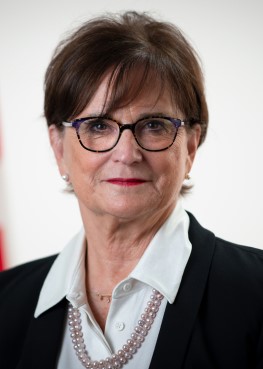Canada’s membership in the International Holocaust Remembrance Alliance
Canada’s commitment to human rights and combatting antisemitism at home and abroad is anchored in our membership and work with the International Holocaust Remembrance Alliance (IHRA).
On this page
Overview
The IHRA is an international institution composed of 35 member countries and 8 observer countries. They are devoted to Holocaust education, remembrance and research, and united through a shared commitment to the Stockholm Declaration (2000), the outcome of the Stockholm International Forum on the Holocaust in 2000. As the only international institution mandated to focus on issues related to the Holocaust, the IHRA promotes awareness about the far-reaching negative impacts of antisemitism around the world and seeks ways to end it. Canada has been a proud member of the IHRA since 2009 and served as its chair from March 2013 to February 2014.
Canada strongly supports and encourages the wide adoption and implementation of the IHRA’s non‑legally binding working definition on antisemitism (PDF) and illustrative examples, which the IHRA adopted by consensus in May 2016. The Government of Canada adopted the IHRA definition on antisemitism domestically through Canada’s Anti-Racism Strategy 2019 to 2022.
“Antisemitism is a certain perception of Jews, which may be expressed as hatred toward Jews. Rhetorical and physical manifestations of antisemitism are directed toward Jewish or non-Jewish individuals and/or their property, toward Jewish community institutions and religious facilities.”
- IHRA definition of antisemitism
We are proud of the distinctly Canadian connection to this IHRA antisemitism definition, which is drawn verbatim from the 2010 Ottawa Protocol on Combatting Antisemitism. The Ottawa Protocol was unanimously adopted by Parliament in 2011 and is anchored in the equality rights and anti-discrimination provisions of the Canadian Charter of Rights and Freedoms.
Our representative
Related links
- Freedom of religion or belief
- Canada’s Anti-Racism Strategy
- Canada’s Pledges on Holocaust Remembrance and Combatting Antisemitism
- Date modified:
